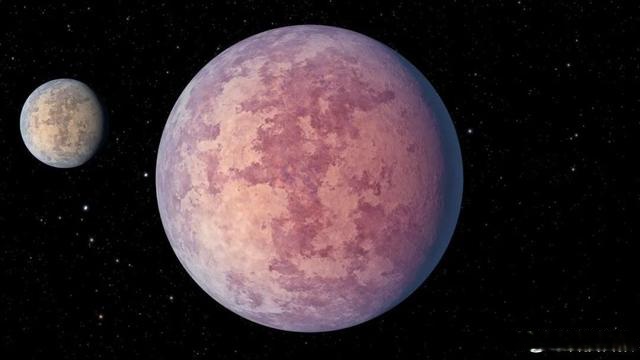New discovery two "super earth"
Author:The official account of Xi'an Time:2022.06.22
The National Aeronautics and Space Agency (NASA) recently announced that its "TESS) mission discovered two" new worlds "that may contain rock minerals. It is only 33 light years from the earth, and it is one of the closest multi -planet systems that has so far. Scientists can use this discovery to understand the composition of the outer planet and evaluate their atmospheric layers to provide important clues for people to find alien life.

These two newly discovered exogenous planets are called "Super Earth" -larger than Earth, but smaller than ice superstars. They run around a cold red dwarf called HD 260655. The size of the planet HD 260655 B is 1.2 times that of the earth, and the quality is about twice that of the earth, around the star for a week every 2.8 days. The size of the planet HD 260655 C is 1.5 times that of the earth, and the quality is three times that of the earth, every 5.7 days around the star. Researchers said that according to size, quality and density data, they are likely to be rock planets.
The temperature of these two planets is difficult to maintain the existence of life. The temperature of the planet B is about 435 ° C, and the temperature of the C planet is about 284 ° C. The actual temperature depends on the possible atmosphere and its nature.
Nevertheless, the scientific team of these planets said they are worthy of further research. They are relatively close to us. Although the stars they surround are smaller than the sun surrounded by the earth, they are the brightest in the same kind. These and other factors have increased the possibility of catching data from the Hubble Space Telescope to capture data from the stars that pass through these planet atmosphere. Analyzing the spectrum of this star light can reveal which molecules in the atmosphere.
The research team stated that among all the planets that have been discovered so far, the atmospheric characteristics of these two planets are in the top 10, which has attributed them to the same category as one of the most famous planetary systems: surrounding TRAPPIST called Trappist -1's 7 stars are equivalent to planets of the earth. Trappist-1 and several other rock-based exterior planets have been in the list of observation targets of the Webb Mirror.
Michel Kunimoto, a astronomer of the Institute of Kaiflibettia Physics and Space Institute of Massachusetts Institute of Technology, said: "Are these planets around the atmosphere rich in volatile substances? Are there signs of water or carbon species? These planets are an excellent test desk for these explorations. "
So far, more than 5,000 exterior planets have been confirmed in the galaxy. Celestial biologists are very interested in finding land or rocky worlds such as the earth, Venus, and Mars. Human beings have only one earth, so finding planets similar to the earth in size and composition are one of the primary criteria for looking for other life homes in the Milky Way.
"Many planet systems have five or six planets." Avi Schipple, a celestial physicist at the Massachusetts Institute of Technology in Massachusetts Institute of Technology and Space Institute of Physics and Space Institute, said, "I hope we can find more, I hope we can find more. And one of the planets may be livable. "
The team announced their discovery at the 240th session of the American Astronomical Society. Related papers have been published in the scientific journal "Astronomy and Astronomy".
Source: Science and Technology Daily
- END -
Transition to IPv6: Have we reached?

The legendary story of the transition to IPv6 continued to surprise all of us. The...
Several progress and effectiveness of health education work

1 Click the picture to view it123] ● For more informa...